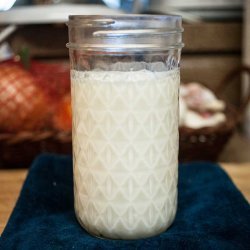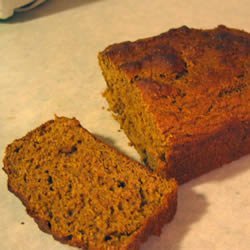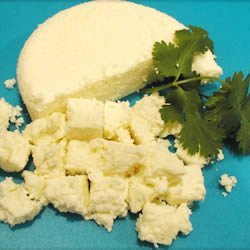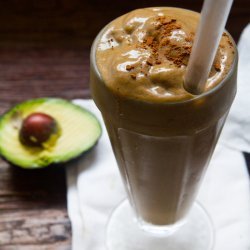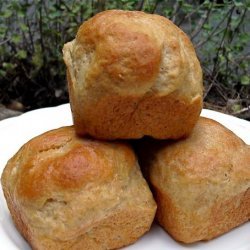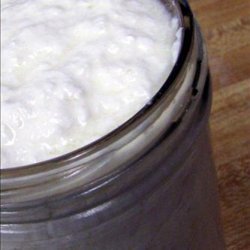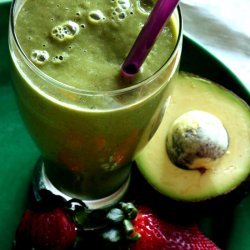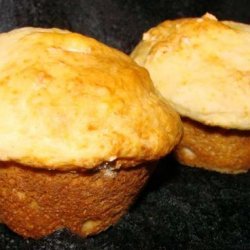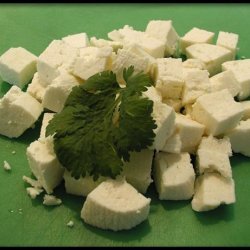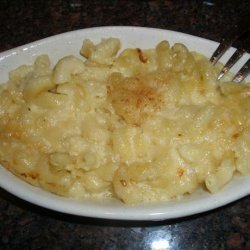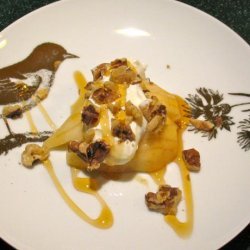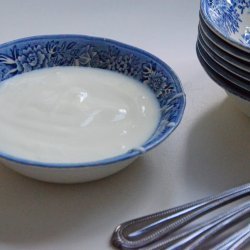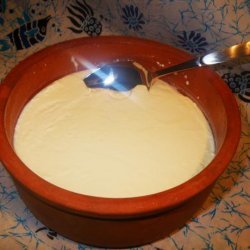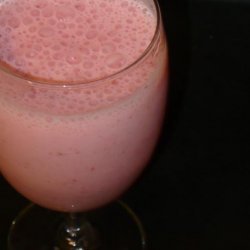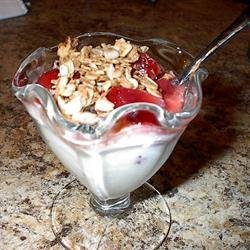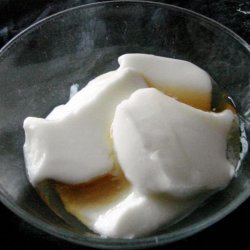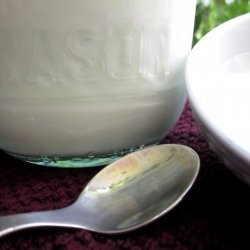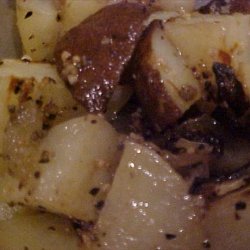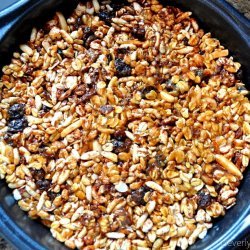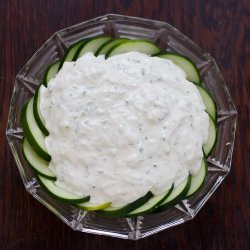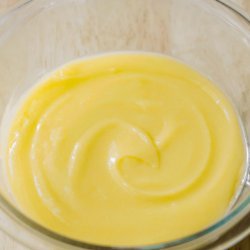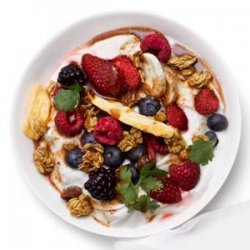Ingredients:
- flavorings such as jam , honey , dulce de leche , molasses, fresh or dried fruit , garlic , herbs , etc (optional)
Directions:
- Start by cleaning and sterilizing all your equipment and tools as well as your work surface. Most utensils and storage containers can be sanitized in the dishwasher (some machines have a sanitize setting). Alternatively, sterilize everything in boiling water.
- Prepare an ice bath, filling a large bowl or sink with ice.
- Attach a candy thermometer to a heavy, large pot and add the milk. Place the pot over moderate heat and heat the milk until it reaches at least 180°F or boils, stirring occasionally to prevent a skin from forming and making sure the milk doesn't scald or boil over. Alternatively, place the milk in a large microwave-safe bowl or a large glass measuring cup with a spout (for easy pouring) and microwave it in 2- to 3-minute intervals, until it reaches 180° or boils.
- Remove the milk from the heat and allow it to cool to 110°F to 115°F. To speed the cooling process, place the pot in the prepared ice bath and stir the milk occasionally. (If the milk temperature drops too low, return it to the heat.)
- If using yogurt as a starter culture: In a small bowl, combine about 1 cup warm milk with the yogurt and stir to combine. Add the yogurt-milk mixture to the remaining warm milk and stir until completely incorporated. Do not stir vigorously.
- If using a powdered yogurt culture: Follow the manufacturer's instructions and add the specified amount of powdered culture to the warm milk; whisk until completely incorporated. Do not stir vigorously.
- Pour or ladle the mixture into the yogurt maker containers or another incubator (if using a thermos, first warm the inside with hot tap water) and incubate between 110°F and 115°F for 5 to 10 hours, depending on the desired flavor and consistencylonger incubation periods produces thicker, more tart yogurt. Do not disturb the yogurt during incubation.
- Cover the yogurt and refrigerate until cold, 2 to 3 hours. (If you used a thermos to incubate, transfer the finished yogurt to a non-insulated container for chilling so the temperature will drop.) Stir any flavorings into the yogurt just before serving. (For thicker, Greek-style yogurt, after incubation, spoon the yogurt into a cheesecloth-lined colander set over a bowl and let it drain, covered in the refrigerator, for at least 1 hour or overnight. Discard the whey that drains out of the yogurt or reserve it for another use.)
- Yogurt can be stored in the refrigerator, in covered glass, ceramic, or plastic containers, for up to 2 weeks, but the flavor will be the best during the first week. As yogurt ages, it becomes more tart. If more whey separates out of the yogurt, just stir it back in before serving.
- Cook's notes: Yogurt needs to incubate for at least 5 hours, but it can safely incubate for much longer, even overnight. If you're using a yogurt maker with a timer and you set it for a shorter incubation (5 hours, for example), it's fine to let it sit there for several more hours. The same is true for a thermos or other incubation method; just keep in mind that the longer the incubation period, the thicker and more tart the final yogurt. The whey that drains from the yogurt is full of vitamins and minerals and can be added to smoothies and lassis, used as a cooking liquid, or made into a simple drink with a bit of sugar or salt. As an alternative way to thicken yogurt, whisk in 3 or 4 tablespoons nonfat powdered dry milk when you add the starter. This recipe may be doubled or tripled; increase the amount of starter and milk proportionately.
Nutrition Facts
| Amount Per 1 Serving | |||
| Calories | 340.21 Kcal (1424 kJ) | ||
| Calories from fat | 3.1 Kcal | ||
| % Daily Value* | |||
| Total Fat | 0.34g | 1% | |
|---|---|---|---|
| Cholesterol | 21.09mg | 7% | |
| Sodium | 416.89mg | 17% | |
| Potassium | 1546.62mg | 33% | |
| Total Carbs | 49.57g | 17% | |
| Sugars | 49.57g | 198% | |
| Protein | 29.74g | 59% | |
| Vitamin C | 0.1mg | 0% | |
| Calcium | 1209.5mg | 121% | |
| Amount Per 100 g | |||
| Calories | 34.31 Kcal (144 kJ) | ||
| Calories from fat | 0.31 Kcal | ||
| % Daily Value* | |||
| Total Fat | 0.03g | 1% | |
|---|---|---|---|
| Cholesterol | 2.13mg | 7% | |
| Sodium | 42.05mg | 17% | |
| Potassium | 155.99mg | 33% | |
| Total Carbs | 5g | 17% | |
| Sugars | 5g | 198% | |
| Protein | 3g | 59% | |
| Calcium | 122mg | 121% | |
* Percent Daily Values are based on a 2000 calorie diet. Your daily values may be higher or lower depending on your calorie needs.
Find out how many calories should you eat.
Get Your Recipe of Health!
Follow RecipeOfHealth on Facebook!


